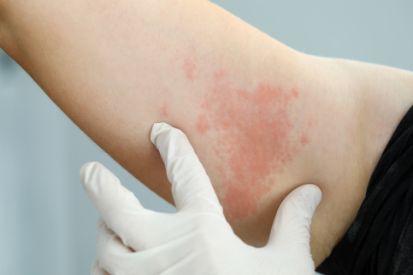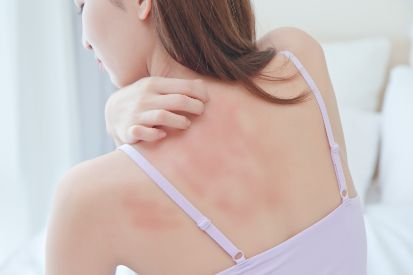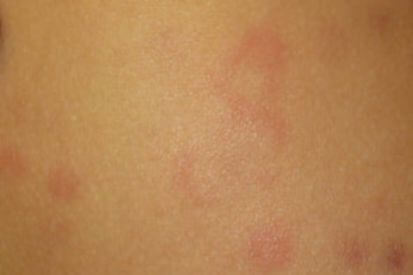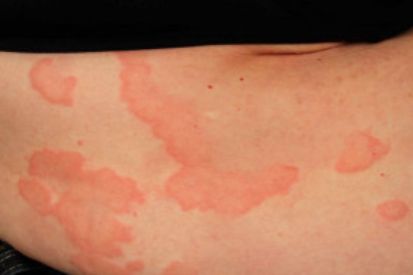Hives
Understanding Hives and Their Causes
Hives, also known as urticaria, are red, itchy welts that appear on the skin. These welts can vary in size and may join together to form larger areas of raised skin. Hives can be triggered by various factors, including allergens, stress, infections, and certain medications. They can appear anywhere on the body and can be both acute and chronic, lasting from hours to weeks or even months.
Hives occur when histamine and other chemicals are released from under the skin's surface. This reaction can be caused by allergies, insect bites, infections, stress, and exposure to sunlight, among other triggers. Identifying the specific cause of hives is crucial for effective treatment and prevention.
Get Expert Treatment for Hives at Riva Dermatology
If you're experiencing hives, Riva Dermatology is here to help. Our team of experienced dermatologists will work with you to identify triggers and provide effective treatments to relieve your symptoms and prevent future outbreaks. Schedule your consultation for hives treatment at Riva Dermatology today.
Examples of Hives




What are the Symptoms of Hives?
- Hives, or urticaria, is an itchy skin rash that present as raised, itchy welts on the skin that vary in size and shape.
- Hives can appear suddenly and often migrate, causing discomfort.
- Symptoms may resolve within hours but can persist.
- Severe cases can involve swelling of the face, lips, or throat, requiring prompt medical attention.
What are the Causes of Hives?
- Reactions to certain foods, medications, insect stings, or pollen.
- Viral or bacterial infections.
- The body's immune system mistakenly attacking its own tissues.
- Adverse reactions to certain drugs.
- Exposure to heat, cold, pressure, or sunlight.
- Emotional stress can trigger hives in some individuals.
- Chronic conditions like thyroid disorders or lupus.
How to Prevent Hives
FAQs on Hives
Hives can be triggered by allergens such as foods, medications, insect stings, and pollen. Other triggers include stress, infections, exercise, and exposure to heat or cold.
Acute hives can last less than six weeks, often resolving within 24 hours. Chronic hives can persist for more than six weeks and may require ongoing treatment.
While hives are generally harmless, they can sometimes indicate an underlying health issue. If you experience difficulty breathing, swelling of the tongue or throat, or severe hives, seek medical attention immediately.
Diagnosis of hives usually involves a physical examination and a review of your medical history. Allergy tests or blood tests may be conducted to identify potential triggers.
Treatment options for hives include antihistamines, corticosteroids, and avoiding known triggers. Severe cases may require prescription medications or referral to an allergist.
Yes, identifying and avoiding triggers, wearing loose-fitting clothing, and reducing stress can help manage and prevent hives.
Treatment Options for Hives
Consulting with your dermatologist will provide the best treatment options for your specific condition. Schedule with us today.
Featured Products
Check your local office for current stock!
Check your local office for current stock!


